About Me
The Alter e-go Blog
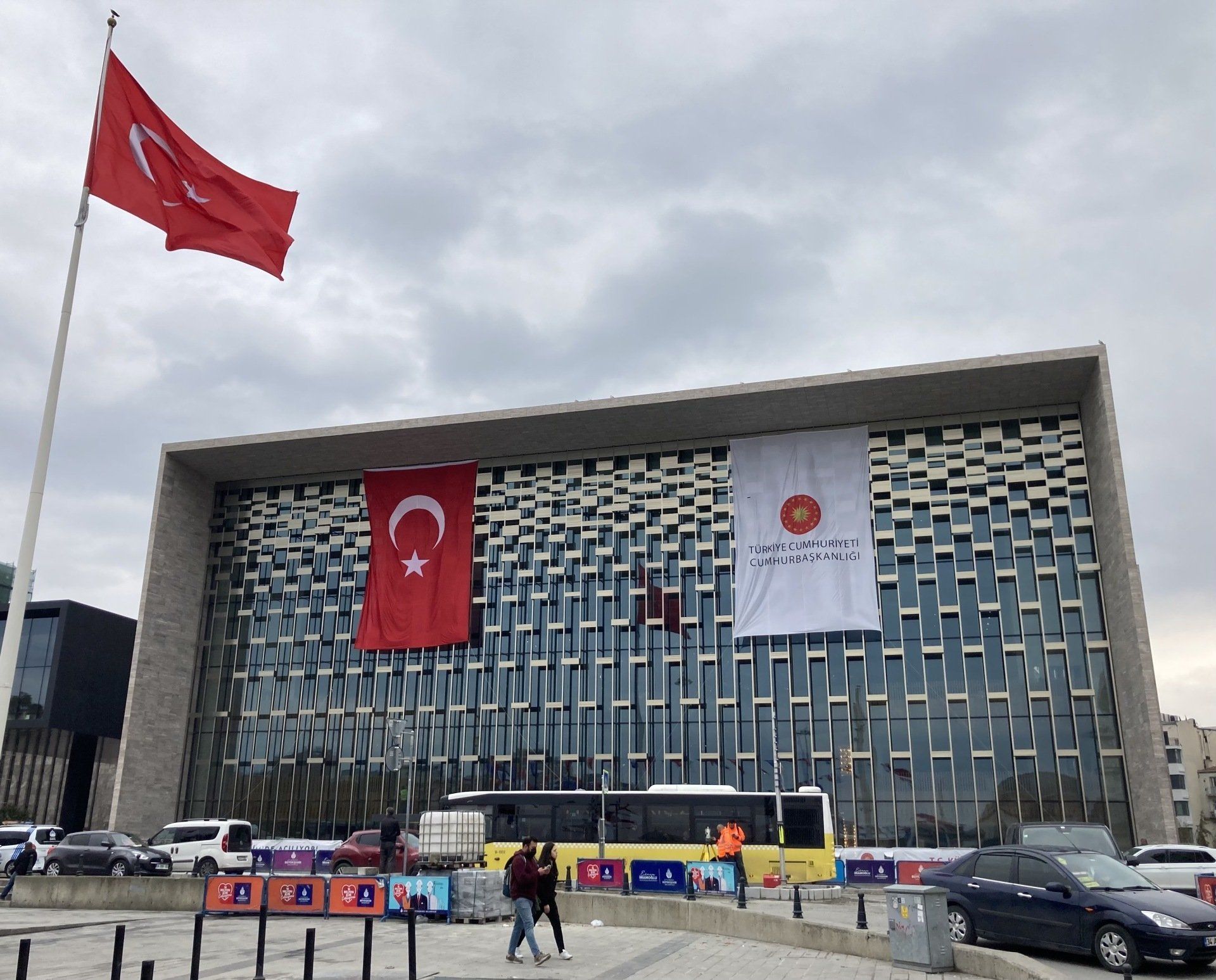
The re-opening ceremony of the Atatürk Kültür Merkezi (AKM) in Taksim square is set to potentially be a crowning moment in the alignment of Turkey’s rich cultural past and its current modern dynamism.
The depth of Turkey’s historic cultural wealth is arguably second to none amongst the world’s nations and it represents a natural resource that is akin to huge reserves of oil, gold or precious stones.
A significant step towards maximizing this potential and extracting latent wealth has already been taken with the extensive investment in infrastructure that has transpired over the last 15 years. The improvements to the highway system, the new metro lines, the Marmaray Tunnel under the Bosphorus, the Osmangazi Bridge, The Çanakkale bridge project and of course the amazing Istanbul International Airport (to mention just a handful of recent projects) have all helped catapult Turkey into the modern era and form a solid platform for future investment and growth.
It is this continued rapid modernism of Turkey combined with its impressive cultural reserve and unique geographical position that will help attract ever increasing numbers of visitors and investors in the years ahead and assume an increasingly important role as the whole world enters a new era driven by technological advancement.
Just as the gates of AKM, in the days before mobile phones, acted as a preferred meeting point, Turkey, as the land where East meets West, is a natural hub and, with its heightened connectivity, one that enables visitors both to more easily access its cultural treasures and explore its new found Modernity.
© Matthew C. Warner. All rights reserved 24.10.21
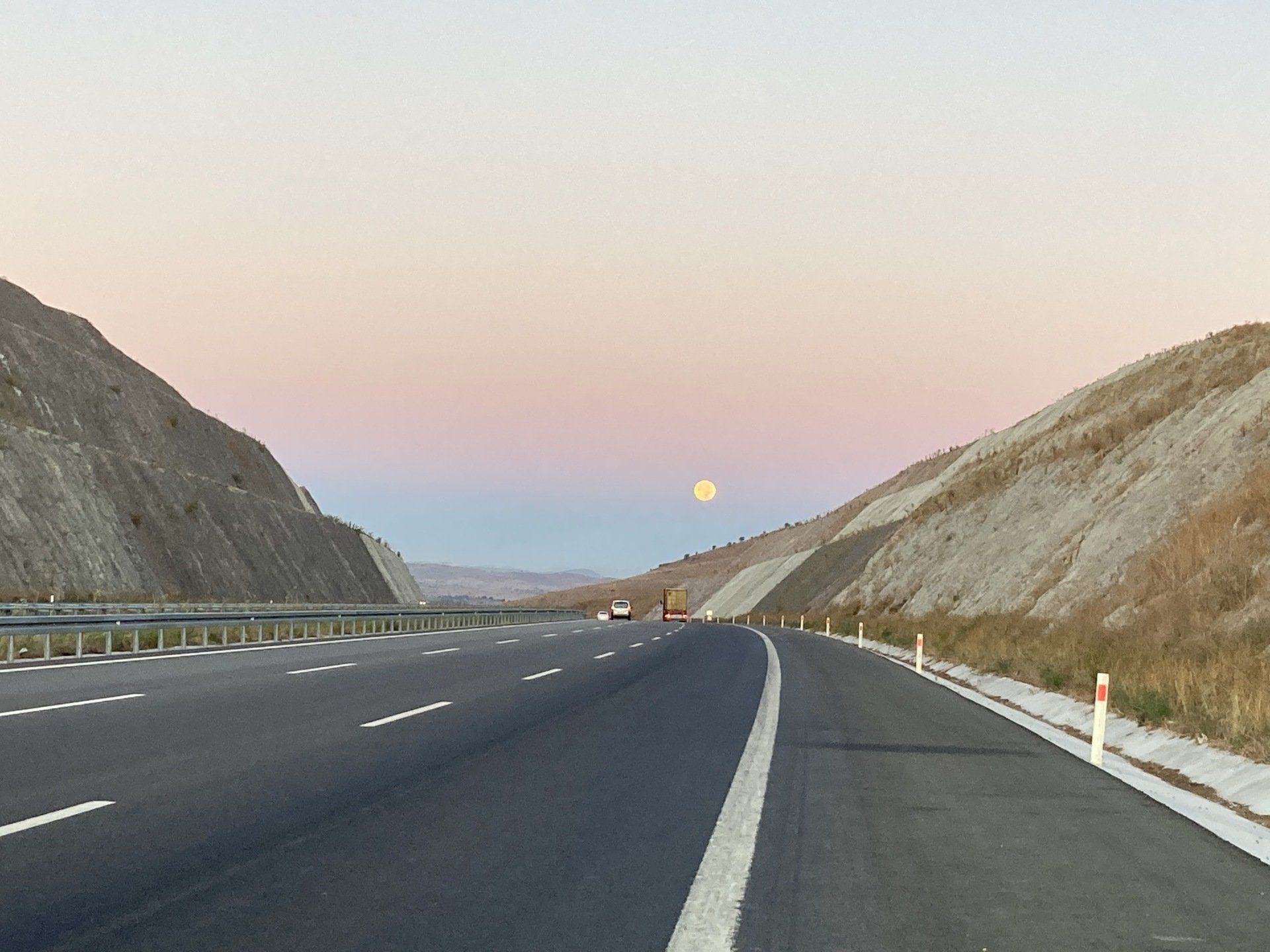
Aspire, inspire, strive to be the best that you can.
Take the time to embrace the wonder, happiness and joy in every day
and however small those things may seem, be thankful for them.
You may achieve, or even exceed, your wildest dreams,
or life may take you down a different path,
but what you live each day can neither be taken away nor added to.
it is the record of your life,
so ‘live’ it to the full
and experience every moment.
© Matthew C. Warner All rights reserved 14.10.21
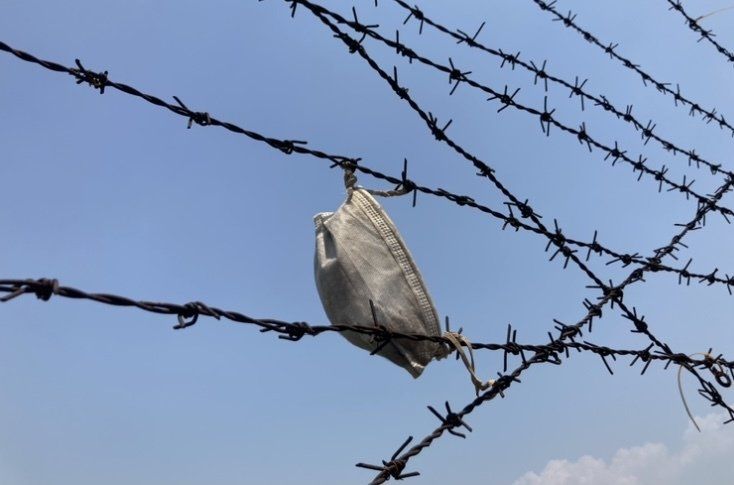
The world we live in today is changing at an astonishing rate on a multitude of levels. Even America, that cornerstone of global stability, appears to be suffering somewhat of an identity crisis, the ripple effect of which is already extending way beyond its own boarders.
This is a situation brought about by a breakdown of our sense of community which has transpired by a slow process of encroachment that started in earnest in the middle of the last century and reached its peak through the first two decades of this century, whereby we had collectively been sucked into a consumerist society. A society where the lust for personal satisfaction outweighed the needs of the wider community, or of the planet that we all share, turning us increasingly into a selfish society. .
In the wall of uncertainty that faced us there appeared a crack through which light, at first weak, but now gaining in strength, has begun to shine. It is a light that is bringing new purpose to people’s lives, setting down new foundations towards a changed world. That light is a re-connection with nature and with humanity.
It has been triggered by an extraordinary series of catastrophic events of biblical proportion from pandemic to floods and raging wildfires which, through their unprecedented nature, have jolted our collective consciousness, and forced us to recognize our own frailty and that of our planet.
Confronted by the unknown and by losses that have been suffered, many of us are once again discovering the value of meaningful interaction with our families, friends, society and with the natural world around us.
We are all together on this planet and it is through this togetherness that we can chart a path towards a brighter, more sustainable, inclusive future.
Let us re-awaken the ‘power of caring’.
© Matthew C. Warner. All rights reserved 01.09.21
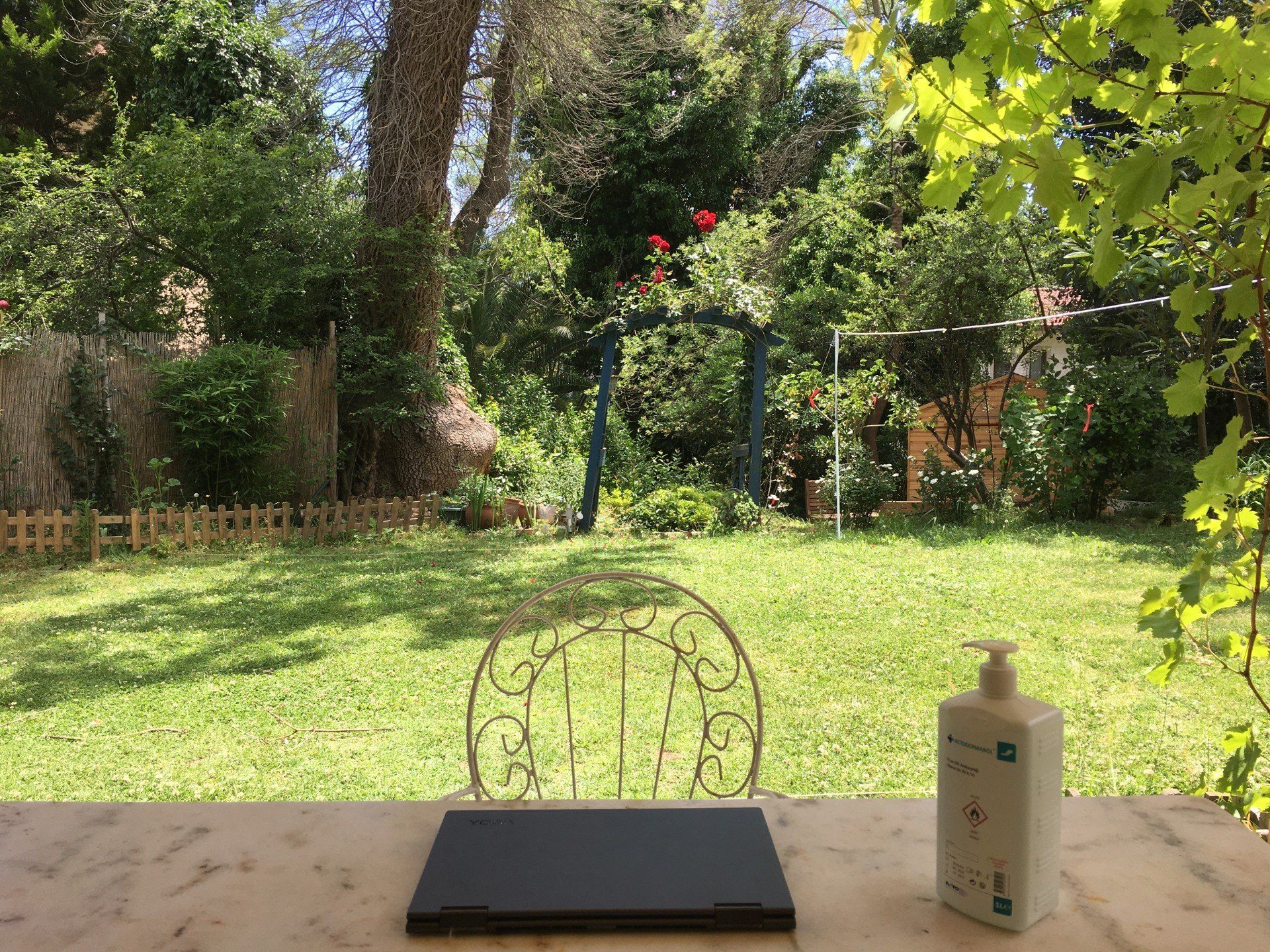
When Corona eases and businesses get fully back to work, we may well find that we see a combining of initiatives towards changed occupational habits.
This relates to concepts that were already on the agenda, but which are likely to be picked up with a renewed sense of purpose as regards our work spaces in terms of i) sustainability ii) flexibility and iii) quality of workspace experience.
i) Sustainability: was rising up the agenda before Corona hit. Whilst little room has recently been given for further comment on this important issue as the world went into shutdown, we will come out of this malaise not only with a renewed sense of importance in terms of our relationships with each other, but also our relationship with the planet.
We have been given a chance to pause for breath and to realize that the damaging path we were on is not the ‘necessary evil’ of an unchangeable consumerist existence. We have seen how, when forced upon us, it is possible to achieve huge reductions in carbon emissions. We have also seen that we cannot take for granted the enjoyment of our outside spaces and we have been forced into a greater appreciation of all of the wonder that our planet has to offer. It is like a light has been shone showing us a different path towards a more caring society where collective action towards changing our life priorities can lead to enhancement for the common good.
This heightened awareness of the value of our environment will manifest itself in many ways, but in terms of our business space it will lead to a drive towards more sustainable office solutions in terms of efficiency of operation as well as whole-portfolio occupational strategies based on a reduced carbon footprint.
ii) Flexibility: was fast becoming a buzz word in the run-up to the Corona shut-down, as we saw the expansion of shared work-space concepts and companies pushing the boundaries in terms of integrated work place solutions optimizing the efficiency of the workplace. Whilst attracting good media coverage these initiatives were, however, just scratching the surface in terms of the percentage of total office stock. Intransigent attitudes towards workers ‘needing to be in the office’ to deliver maximum results meant that working from a non-office environment, whether from home or an alternative creative space, was often frowned upon and given little real chance to flourish.
Here again change has been forced upon us with the Corona Pandemic. Bosses have been able to see that responsible workers often work harder when left to their own devices and (subject to the nature of business) are able to engage with a range of creative environments and varied working hours to deliver maximum results.
Working in a non-office environment does not work for all businesses, or sectors within businesses, but the ‘whole company’ trial that has been necessitated in many parts of the world, has clearly highlighted for many companies which sectors need to be in a fixed office and which flourish in alternative environments.
What this means is that we are likely to see companies focusing more intently on the nature of space that they actually need to properly reflect their business and to provide for their regular office-based staff and client interface. Alongside that to have an element flexible space to allow for team members who will be working away from the office to come in when necessary, to showcase their work and collaborate with colleagues and clients, when a physical presence is required. Such flexible spaces will, however, need to be subject to strict hygiene routines to make sure that any shared work space environment is fit for purpose.
These first two areas of change will naturally lead to the third aspect of the quality of workspace environment.
İİİ) Quality workspace environment: With companies in the past set on growing their space, taking ever larger premises to house all of their staff as business expanded, catering for the perceived need to find a desk space for each member of the growing workforce, compromises inevitably had to be made. This often led to a downgrading of locational preference, or even a split office solution, away from an optimum position, to contain overheads, leading in many instances to inefficiencies in operation. For those that tried to maintain their prime location, offices often became increasingly cramped again unwittingly affecting efficiency in terms of amenity, worker attitude and the ability to attract the best staff.
With a careful assessment of staffing ability enabling a percentage of the workforce to work away from the office, companies will be able to re-focus on locations for their physical office that work best for their business and to create an environment with a desk spacing regime combined with a range of bespoke hygiene measures (for those staff that do have to be in the office) that is not only healthier (in terms of the spread of germs/infectious diseases), but also creates a more spacious setting towards a better psychology for their staff, the ability to attract and retain the best staff, flexible options to allow for staff who need only sporadically to come to the office and an overall image more reflective of the business. In short a better quality working environment leading to enhanced results.
Offices will be a showcase of how companies wish to present themselves: creative, socially aware, environmentally responsible, contributive spaces.
There are already a number of developers who are championing the creation of such spaces, but with the heightened demands we are now likely to see from the occupational sector, others will seek to raise their game to the betterment of the urban fabric, enhancement of the quality of life, of relationships, and of our world.
For information on quality workspace opportunities please contact: Matthew Warner BA Dip PVL MRICS matthew.warner@astas-group.com Tel: 0090 533 322 4015 www.astas-holding.com
© Matthew Charles Warner Text and image all rights reserved15.05.2020

Through Covid-19 and on to a better world.
Before the global shut-down, due the Corona Pandemic, there was a growing concern over the effects of globalization on climate change.
In an earlier article I highlighted how Corona has made us think more about our habits and what we are doing to our planet.
Covid 19 has in many ways forced us to ''think local'' and to re-connect with issues closer to home that are of core importance.
Let us hope that post Corona we move on from our love affair with consumerism and the alter e-go drive to self aggrandizement, towards restoring a former relationship with the world and society and all of the cultural richness that surrounds us.
How refreshing it is to see social media used for contacting (and showing solidarity with) elderly relatives and those in need of support, rather than showing off the latest item of disposable fashion. In effect social distancing seems to be bringing us closer together.
With the confusing noise of a pumped up greedy world temporarily subsided, let us use the quiet to re-focus towards a simpler, more thoughtful existence, where we care about our planet, all the natural wonders that exist on it and the society that we are part of.
To share ideas on how the physical spaces we live in might change to further encourage engagement with society, do contact me on Linked In, Instagram, or Facebook
© Matthew Charles Warner Text and image all rights reserved 28.03.2020

However you may look at the current Corona virus episode that is affecting us all, you cannot escape the fact that it forces us to reflect on our lives and (trusting it will pass shortly) I would urge us to treat it as a wake-up call to see how we can do things better.
Of course there are those who may liken it to some sort of plague sent by a higher force as a punishment for inaction, in relation to how we are treating our planet. After all the youth have been crying for years that we need to take action on climate change and the elders have been slow to act. So when a virus comes that targets the old and seems not to affect the young, a virus that forces people to stop flying, not to travel to the office, but to work from home and to hold video conferences rather than mass gatherings involving travel from further afield, one might see how such an opinion can be formed.
For me I like to look at the positives, however dark the days get. I like the saying that ‘every cloud has a silver lining’. So let us see how these events could make us reflect on how we go about our business and to work on how we can improve things in the future.
I am old enough to have seen 5 very different decades. When I was younger travel was a thing of wonder, including the journey itself, and a very special thing that individuals and families (save for the odd serial intrepid traveler writing his travel memoirs, or mapping remote hideaways) did quite rarely (certainly not more than once a year at tops). They brought back unique presents from unique locations around the world and gave a taste of the exotic to their friends and families through such gifts and the slide show of photos that followed for months afterwards.
On the work front people tended to work in the towns they lived in and certainly the countries in which they were born, with those who flew the nest to work in far flung places few and far between.
Then came the opening up of the airways, mass travel, mass consumerism and globalization. Starting innocently enough and almost imperceptibly building into a giant snowball which absorbed all in its path and connected everything such that boundaries and the sense of identity that came with such became blurred, one thing indistinguishable from the other.
The unique identities of foreign destinations and the experiences they offered were increasingly being lost as each retail street in each location began to look the same with global brands all pervasive and local colour and local crafts faded.
Commutes into the office became ever longer as more and more people worked further from their place of dwelling shrinking quality family time and the drive for ever more things placed mounting pressure on parents to work until they dropped.
So let us see this crisis as an opportunity to take a step back, observe the beauty around us, appreciate our local communities and spend time with our families of all generations, let ‘precious time together’ be what we strive for and let us enjoy the wonder of the world and, as I have said in my earlier blog: ‘’let us be happy knowing that we have all that we need rather than needing to have it all’’.
When normality returns let us not accept yesterday’s norm, let us work towards a better world driven by our relationships and a desire to protect, preserve and embrace the planet that we live on.
For a discussion on how we can ‘build in’ a more sustainable existence through the spaces we occupy contact Matthew Warner
Above text and image: © Matthew C Warner August 20.03.2020. All rights reserved.
PHOTO: by Matthew C Warner
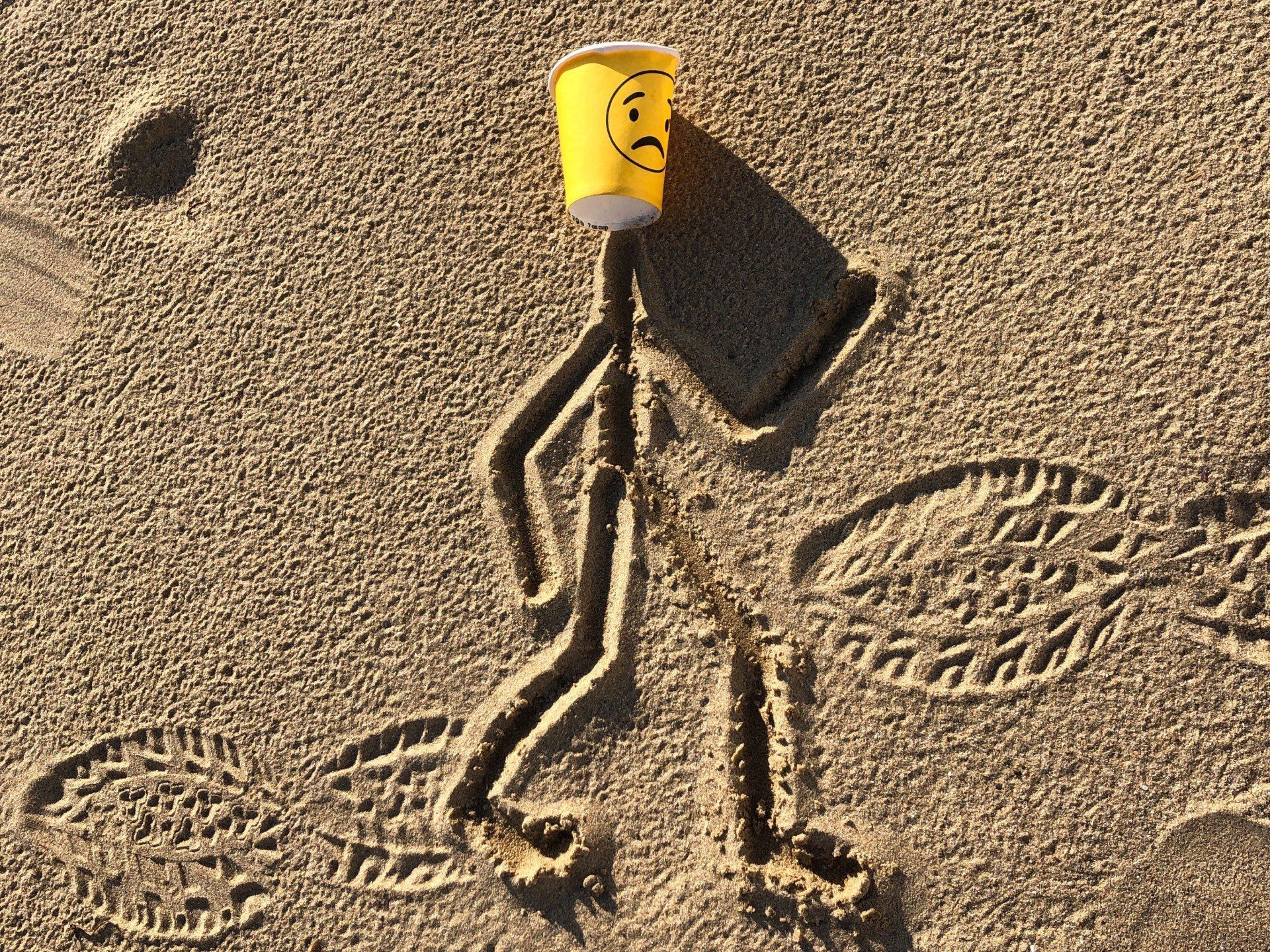
Whilst hugely important to address, climate change is not the core problem, it is a symptom.
To alleviate the symptom we need to tackle the cause.
The cause is global greed fueled by excessive consumption and ignorance.
That is the principal issue we must tackle.
We have reached a dark place as a society whereby we feel that we are defined by the things that we have.
Instead of consuming ‘things’, however, we should consume knowledge and culture.
Let us promote knowledge, culture and understanding as the key measure of worth.
We should invest in relationships, friendships, experiences and sharing knowledge …… not simply collecting material possessions.
There is light at the end of the tunnel, the new generation is not only super concerned about what current and past generations have done to our planet, but they are seeking new ways to live and work based on sharing not owning.
Forward thinking developers are heeding this message and creating amazing new collaborative spaces, often converting older spaces and changing its use minimizing the carbon foot print of such initiatives.
Let us not walk the trodden path let us walk the other way.
We will shortly announce a new platform to share ideas and knowledge ….. Watch this space.
Above text and image: © Matthew C Warner 04.03.2020. All rights reserved.
PHOTO: Walking the other way on climate change by Matthew C Warner
Matthew C Warner. 04.03.2020
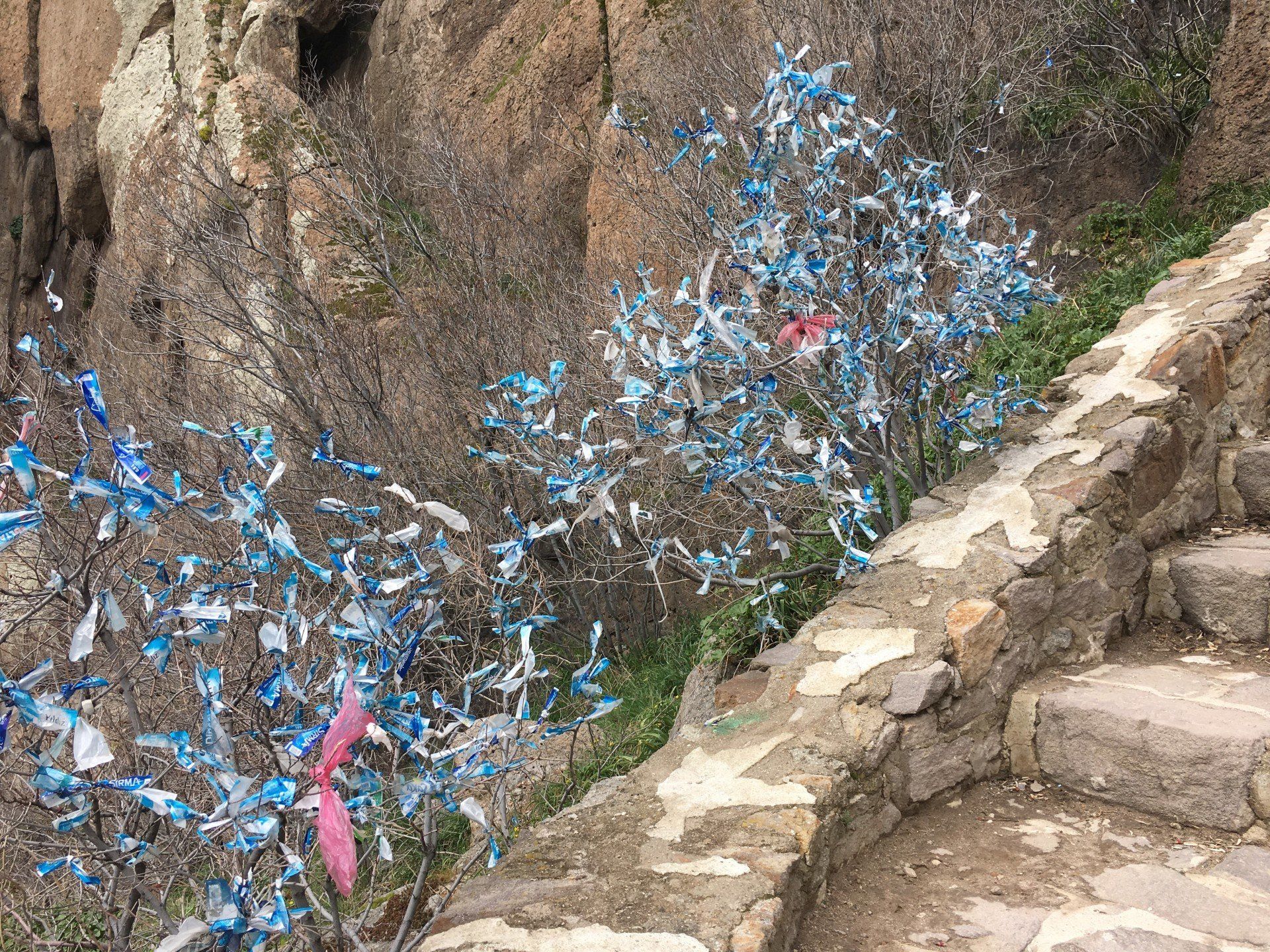
It’s all connected:
The plastic
Crumbling High streets
Selfies
Globalisation
Barbies
Consumerism
Botox
Self-harm
Isolation
Fading identities
Nationalism
Melting ice caps
Oh yes .... and again .... the plastic.
Destruction: Poem by M.C.Warner
© MatthewCharles Warner All rights reserved 19.09.19 text and image.
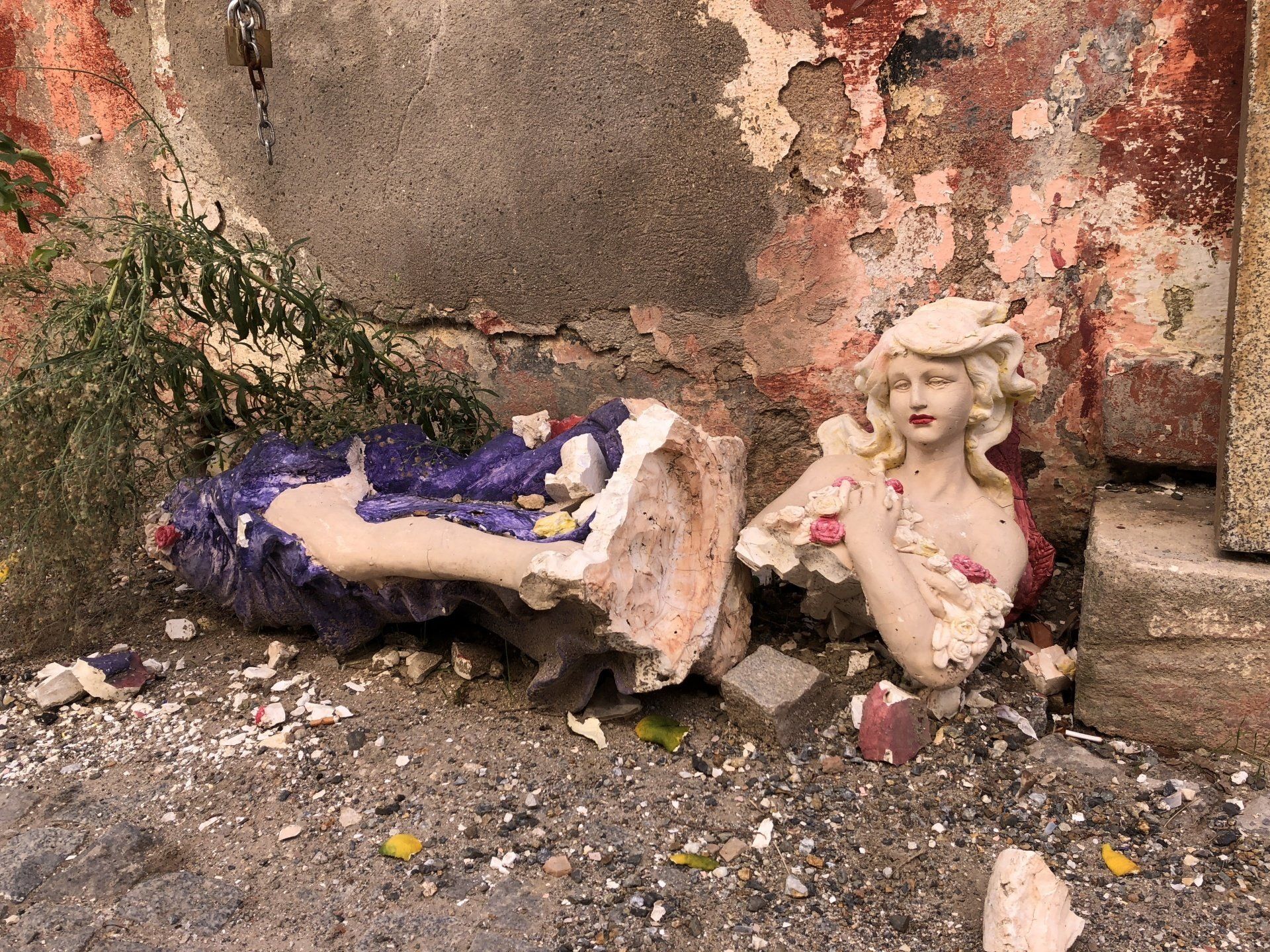
The High Street reborn.
Word is that the ‘High Street’ is dead.
Globalisation has seen the same brands and products spread throughout the world causing every high street (and for that matter shopping centre) to look the same …. killing individuality.
Combine the intoxicating drug cocktail of mass consumerism mixed with the hedonism of the selfy – society, retailers producing ‘fashion goods’ for the moment and the ‘I want it all …. I want it now mentality’ and for sure we have seen the high street dumbed down to the lowest common denominator of the ‘all for a pound’ experience.
With prices and associated quality at rock bottom, the concept of creating a retail ‘experience’ has been consigned to the history books with shoppers no longer ‘customers’, but pawns (consumer addicts if you like) caught up in a vicious cycle of ever degenerating standards.
The whole experience of shopping has become tedious, something that ‘has to be done’ to be ‘seen’ to be up with the latest misguided disposable trends just to be ‘liked’ for an instant on social media.
Drab high street shops are no match for the ease of internet retail which seamlessly blends into the alter ego existence of today’s youth.
There is no doubt that today’s high street is broken, but perhaps instead of discarding the high street we could take a leaf out of an ancient practice related to the Japanese philosophy of wabi-sabi , which calls for seeing beauty in the flawed, or imperfect. Rather than simply expressing regret and turning our backs, consider regret as a spur to action, a desire not to waste, but to accept change and to find a way of turning what is broken into something even more beautiful.
The art of Kintsukuroi ( which means “golden repair”) that flows from this is the act of fixing broken pottery with a special lacquer dusted with powdered gold, silver, or platinum which gives the broken piece a unique appearance and the love poured into the mending makes the restored object even more desireable.
Such attention and love is what the High Street needs to be properly repaired.
Every High street around the world needs to rediscover its uniqueness. The retail experience needs to engage its audience, pulling it back from obscurity verging on obselecence.
The path to such repair is paved with original crafts, art, the interconnectivity between the virtual and the real and the value of the individual.
Mended in this way it will be more beautiful than ever and each one will regain its uniqueness and individuality creating a customer experience that is treasured and to which people will flock as a place to meet, engage and explore.
Brands which do not value service, quality, engagement, or any sense of wonder at the experience that traditional retail can and should offer, should be forced out of the high street which they have pushed to the brink of failure. They are like weeds that have taken over a garden through their rapid expansion and verocity, overrunning the original flowers and plants and taking away its colour.
Such retail brands should reserve their products for the internet where they belong.
This will clear the way for the new shoots of a high street dedicated to customer experience unique quality products, entertainment and social interaction. It will also enable local retailers, arts and crafts to resurface bringing back a local and unique feel to high streets in different parts of the country and between countries.
In this way, what is broken will be mended and more valuable that ever.
© Matthew c. Warner Text and image 05.05.19 All rights reserved.
Recent Posts

The re-opening ceremony of the Atatürk Kültür Merkezi (AKM) in Taksim square is set to potentially be a crowning moment in the alignment of Turkey’s rich cultural past and its current modern dynamism.
The depth of Turkey’s historic cultural wealth is arguably second to none amongst the world’s nations and it represents a natural resource that is akin to huge reserves of oil, gold or precious stones.
A significant step towards maximizing this potential and extracting latent wealth has already been taken with the extensive investment in infrastructure that has transpired over the last 15 years. The improvements to the highway system, the new metro lines, the Marmaray Tunnel under the Bosphorus, the Osmangazi Bridge, The Çanakkale bridge project and of course the amazing Istanbul International Airport (to mention just a handful of recent projects) have all helped catapult Turkey into the modern era and form a solid platform for future investment and growth.
It is this continued rapid modernism of Turkey combined with its impressive cultural reserve and unique geographical position that will help attract ever increasing numbers of visitors and investors in the years ahead and assume an increasingly important role as the whole world enters a new era driven by technological advancement.
Just as the gates of AKM, in the days before mobile phones, acted as a preferred meeting point, Turkey, as the land where East meets West, is a natural hub and, with its heightened connectivity, one that enables visitors both to more easily access its cultural treasures and explore its new found Modernity.
© Matthew C. Warner. All rights reserved 24.10.21

Aspire, inspire, strive to be the best that you can.
Take the time to embrace the wonder, happiness and joy in every day
and however small those things may seem, be thankful for them.
You may achieve, or even exceed, your wildest dreams,
or life may take you down a different path,
but what you live each day can neither be taken away nor added to.
it is the record of your life,
so ‘live’ it to the full
and experience every moment.
© Matthew C. Warner All rights reserved 14.10.21

The world we live in today is changing at an astonishing rate on a multitude of levels. Even America, that cornerstone of global stability, appears to be suffering somewhat of an identity crisis, the ripple effect of which is already extending way beyond its own boarders.
This is a situation brought about by a breakdown of our sense of community which has transpired by a slow process of encroachment that started in earnest in the middle of the last century and reached its peak through the first two decades of this century, whereby we had collectively been sucked into a consumerist society. A society where the lust for personal satisfaction outweighed the needs of the wider community, or of the planet that we all share, turning us increasingly into a selfish society. .
In the wall of uncertainty that faced us there appeared a crack through which light, at first weak, but now gaining in strength, has begun to shine. It is a light that is bringing new purpose to people’s lives, setting down new foundations towards a changed world. That light is a re-connection with nature and with humanity.
It has been triggered by an extraordinary series of catastrophic events of biblical proportion from pandemic to floods and raging wildfires which, through their unprecedented nature, have jolted our collective consciousness, and forced us to recognize our own frailty and that of our planet.
Confronted by the unknown and by losses that have been suffered, many of us are once again discovering the value of meaningful interaction with our families, friends, society and with the natural world around us.
We are all together on this planet and it is through this togetherness that we can chart a path towards a brighter, more sustainable, inclusive future.
Let us re-awaken the ‘power of caring’.
© Matthew C. Warner. All rights reserved 01.09.21

When Corona eases and businesses get fully back to work, we may well find that we see a combining of initiatives towards changed occupational habits.
This relates to concepts that were already on the agenda, but which are likely to be picked up with a renewed sense of purpose as regards our work spaces in terms of i) sustainability ii) flexibility and iii) quality of workspace experience.
i) Sustainability: was rising up the agenda before Corona hit. Whilst little room has recently been given for further comment on this important issue as the world went into shutdown, we will come out of this malaise not only with a renewed sense of importance in terms of our relationships with each other, but also our relationship with the planet.
We have been given a chance to pause for breath and to realize that the damaging path we were on is not the ‘necessary evil’ of an unchangeable consumerist existence. We have seen how, when forced upon us, it is possible to achieve huge reductions in carbon emissions. We have also seen that we cannot take for granted the enjoyment of our outside spaces and we have been forced into a greater appreciation of all of the wonder that our planet has to offer. It is like a light has been shone showing us a different path towards a more caring society where collective action towards changing our life priorities can lead to enhancement for the common good.
This heightened awareness of the value of our environment will manifest itself in many ways, but in terms of our business space it will lead to a drive towards more sustainable office solutions in terms of efficiency of operation as well as whole-portfolio occupational strategies based on a reduced carbon footprint.
ii) Flexibility: was fast becoming a buzz word in the run-up to the Corona shut-down, as we saw the expansion of shared work-space concepts and companies pushing the boundaries in terms of integrated work place solutions optimizing the efficiency of the workplace. Whilst attracting good media coverage these initiatives were, however, just scratching the surface in terms of the percentage of total office stock. Intransigent attitudes towards workers ‘needing to be in the office’ to deliver maximum results meant that working from a non-office environment, whether from home or an alternative creative space, was often frowned upon and given little real chance to flourish.
Here again change has been forced upon us with the Corona Pandemic. Bosses have been able to see that responsible workers often work harder when left to their own devices and (subject to the nature of business) are able to engage with a range of creative environments and varied working hours to deliver maximum results.
Working in a non-office environment does not work for all businesses, or sectors within businesses, but the ‘whole company’ trial that has been necessitated in many parts of the world, has clearly highlighted for many companies which sectors need to be in a fixed office and which flourish in alternative environments.
What this means is that we are likely to see companies focusing more intently on the nature of space that they actually need to properly reflect their business and to provide for their regular office-based staff and client interface. Alongside that to have an element flexible space to allow for team members who will be working away from the office to come in when necessary, to showcase their work and collaborate with colleagues and clients, when a physical presence is required. Such flexible spaces will, however, need to be subject to strict hygiene routines to make sure that any shared work space environment is fit for purpose.
These first two areas of change will naturally lead to the third aspect of the quality of workspace environment.
İİİ) Quality workspace environment: With companies in the past set on growing their space, taking ever larger premises to house all of their staff as business expanded, catering for the perceived need to find a desk space for each member of the growing workforce, compromises inevitably had to be made. This often led to a downgrading of locational preference, or even a split office solution, away from an optimum position, to contain overheads, leading in many instances to inefficiencies in operation. For those that tried to maintain their prime location, offices often became increasingly cramped again unwittingly affecting efficiency in terms of amenity, worker attitude and the ability to attract the best staff.
With a careful assessment of staffing ability enabling a percentage of the workforce to work away from the office, companies will be able to re-focus on locations for their physical office that work best for their business and to create an environment with a desk spacing regime combined with a range of bespoke hygiene measures (for those staff that do have to be in the office) that is not only healthier (in terms of the spread of germs/infectious diseases), but also creates a more spacious setting towards a better psychology for their staff, the ability to attract and retain the best staff, flexible options to allow for staff who need only sporadically to come to the office and an overall image more reflective of the business. In short a better quality working environment leading to enhanced results.
Offices will be a showcase of how companies wish to present themselves: creative, socially aware, environmentally responsible, contributive spaces.
There are already a number of developers who are championing the creation of such spaces, but with the heightened demands we are now likely to see from the occupational sector, others will seek to raise their game to the betterment of the urban fabric, enhancement of the quality of life, of relationships, and of our world.
For information on quality workspace opportunities please contact: Matthew Warner BA Dip PVL MRICS matthew.warner@astas-group.com Tel: 0090 533 322 4015 www.astas-holding.com
© Matthew Charles Warner Text and image all rights reserved15.05.2020

Through Covid-19 and on to a better world.
Before the global shut-down, due the Corona Pandemic, there was a growing concern over the effects of globalization on climate change.
In an earlier article I highlighted how Corona has made us think more about our habits and what we are doing to our planet.
Covid 19 has in many ways forced us to ''think local'' and to re-connect with issues closer to home that are of core importance.
Let us hope that post Corona we move on from our love affair with consumerism and the alter e-go drive to self aggrandizement, towards restoring a former relationship with the world and society and all of the cultural richness that surrounds us.
How refreshing it is to see social media used for contacting (and showing solidarity with) elderly relatives and those in need of support, rather than showing off the latest item of disposable fashion. In effect social distancing seems to be bringing us closer together.
With the confusing noise of a pumped up greedy world temporarily subsided, let us use the quiet to re-focus towards a simpler, more thoughtful existence, where we care about our planet, all the natural wonders that exist on it and the society that we are part of.
To share ideas on how the physical spaces we live in might change to further encourage engagement with society, do contact me on Linked In, Instagram, or Facebook
© Matthew Charles Warner Text and image all rights reserved 28.03.2020

However you may look at the current Corona virus episode that is affecting us all, you cannot escape the fact that it forces us to reflect on our lives and (trusting it will pass shortly) I would urge us to treat it as a wake-up call to see how we can do things better.
Of course there are those who may liken it to some sort of plague sent by a higher force as a punishment for inaction, in relation to how we are treating our planet. After all the youth have been crying for years that we need to take action on climate change and the elders have been slow to act. So when a virus comes that targets the old and seems not to affect the young, a virus that forces people to stop flying, not to travel to the office, but to work from home and to hold video conferences rather than mass gatherings involving travel from further afield, one might see how such an opinion can be formed.
For me I like to look at the positives, however dark the days get. I like the saying that ‘every cloud has a silver lining’. So let us see how these events could make us reflect on how we go about our business and to work on how we can improve things in the future.
I am old enough to have seen 5 very different decades. When I was younger travel was a thing of wonder, including the journey itself, and a very special thing that individuals and families (save for the odd serial intrepid traveler writing his travel memoirs, or mapping remote hideaways) did quite rarely (certainly not more than once a year at tops). They brought back unique presents from unique locations around the world and gave a taste of the exotic to their friends and families through such gifts and the slide show of photos that followed for months afterwards.
On the work front people tended to work in the towns they lived in and certainly the countries in which they were born, with those who flew the nest to work in far flung places few and far between.
Then came the opening up of the airways, mass travel, mass consumerism and globalization. Starting innocently enough and almost imperceptibly building into a giant snowball which absorbed all in its path and connected everything such that boundaries and the sense of identity that came with such became blurred, one thing indistinguishable from the other.
The unique identities of foreign destinations and the experiences they offered were increasingly being lost as each retail street in each location began to look the same with global brands all pervasive and local colour and local crafts faded.
Commutes into the office became ever longer as more and more people worked further from their place of dwelling shrinking quality family time and the drive for ever more things placed mounting pressure on parents to work until they dropped.
So let us see this crisis as an opportunity to take a step back, observe the beauty around us, appreciate our local communities and spend time with our families of all generations, let ‘precious time together’ be what we strive for and let us enjoy the wonder of the world and, as I have said in my earlier blog: ‘’let us be happy knowing that we have all that we need rather than needing to have it all’’.
When normality returns let us not accept yesterday’s norm, let us work towards a better world driven by our relationships and a desire to protect, preserve and embrace the planet that we live on.
For a discussion on how we can ‘build in’ a more sustainable existence through the spaces we occupy contact Matthew Warner
Above text and image: © Matthew C Warner August 20.03.2020. All rights reserved.
PHOTO: by Matthew C Warner

Whilst hugely important to address, climate change is not the core problem, it is a symptom.
To alleviate the symptom we need to tackle the cause.
The cause is global greed fueled by excessive consumption and ignorance.
That is the principal issue we must tackle.
We have reached a dark place as a society whereby we feel that we are defined by the things that we have.
Instead of consuming ‘things’, however, we should consume knowledge and culture.
Let us promote knowledge, culture and understanding as the key measure of worth.
We should invest in relationships, friendships, experiences and sharing knowledge …… not simply collecting material possessions.
There is light at the end of the tunnel, the new generation is not only super concerned about what current and past generations have done to our planet, but they are seeking new ways to live and work based on sharing not owning.
Forward thinking developers are heeding this message and creating amazing new collaborative spaces, often converting older spaces and changing its use minimizing the carbon foot print of such initiatives.
Let us not walk the trodden path let us walk the other way.
We will shortly announce a new platform to share ideas and knowledge ….. Watch this space.
Above text and image: © Matthew C Warner 04.03.2020. All rights reserved.
PHOTO: Walking the other way on climate change by Matthew C Warner
Matthew C Warner. 04.03.2020

It’s all connected:
The plastic
Crumbling High streets
Selfies
Globalisation
Barbies
Consumerism
Botox
Self-harm
Isolation
Fading identities
Nationalism
Melting ice caps
Oh yes .... and again .... the plastic.
Destruction: Poem by M.C.Warner
© MatthewCharles Warner All rights reserved 19.09.19 text and image.

The High Street reborn.
Word is that the ‘High Street’ is dead.
Globalisation has seen the same brands and products spread throughout the world causing every high street (and for that matter shopping centre) to look the same …. killing individuality.
Combine the intoxicating drug cocktail of mass consumerism mixed with the hedonism of the selfy – society, retailers producing ‘fashion goods’ for the moment and the ‘I want it all …. I want it now mentality’ and for sure we have seen the high street dumbed down to the lowest common denominator of the ‘all for a pound’ experience.
With prices and associated quality at rock bottom, the concept of creating a retail ‘experience’ has been consigned to the history books with shoppers no longer ‘customers’, but pawns (consumer addicts if you like) caught up in a vicious cycle of ever degenerating standards.
The whole experience of shopping has become tedious, something that ‘has to be done’ to be ‘seen’ to be up with the latest misguided disposable trends just to be ‘liked’ for an instant on social media.
Drab high street shops are no match for the ease of internet retail which seamlessly blends into the alter ego existence of today’s youth.
There is no doubt that today’s high street is broken, but perhaps instead of discarding the high street we could take a leaf out of an ancient practice related to the Japanese philosophy of wabi-sabi , which calls for seeing beauty in the flawed, or imperfect. Rather than simply expressing regret and turning our backs, consider regret as a spur to action, a desire not to waste, but to accept change and to find a way of turning what is broken into something even more beautiful.
The art of Kintsukuroi ( which means “golden repair”) that flows from this is the act of fixing broken pottery with a special lacquer dusted with powdered gold, silver, or platinum which gives the broken piece a unique appearance and the love poured into the mending makes the restored object even more desireable.
Such attention and love is what the High Street needs to be properly repaired.
Every High street around the world needs to rediscover its uniqueness. The retail experience needs to engage its audience, pulling it back from obscurity verging on obselecence.
The path to such repair is paved with original crafts, art, the interconnectivity between the virtual and the real and the value of the individual.
Mended in this way it will be more beautiful than ever and each one will regain its uniqueness and individuality creating a customer experience that is treasured and to which people will flock as a place to meet, engage and explore.
Brands which do not value service, quality, engagement, or any sense of wonder at the experience that traditional retail can and should offer, should be forced out of the high street which they have pushed to the brink of failure. They are like weeds that have taken over a garden through their rapid expansion and verocity, overrunning the original flowers and plants and taking away its colour.
Such retail brands should reserve their products for the internet where they belong.
This will clear the way for the new shoots of a high street dedicated to customer experience unique quality products, entertainment and social interaction. It will also enable local retailers, arts and crafts to resurface bringing back a local and unique feel to high streets in different parts of the country and between countries.
In this way, what is broken will be mended and more valuable that ever.
© Matthew c. Warner Text and image 05.05.19 All rights reserved.

